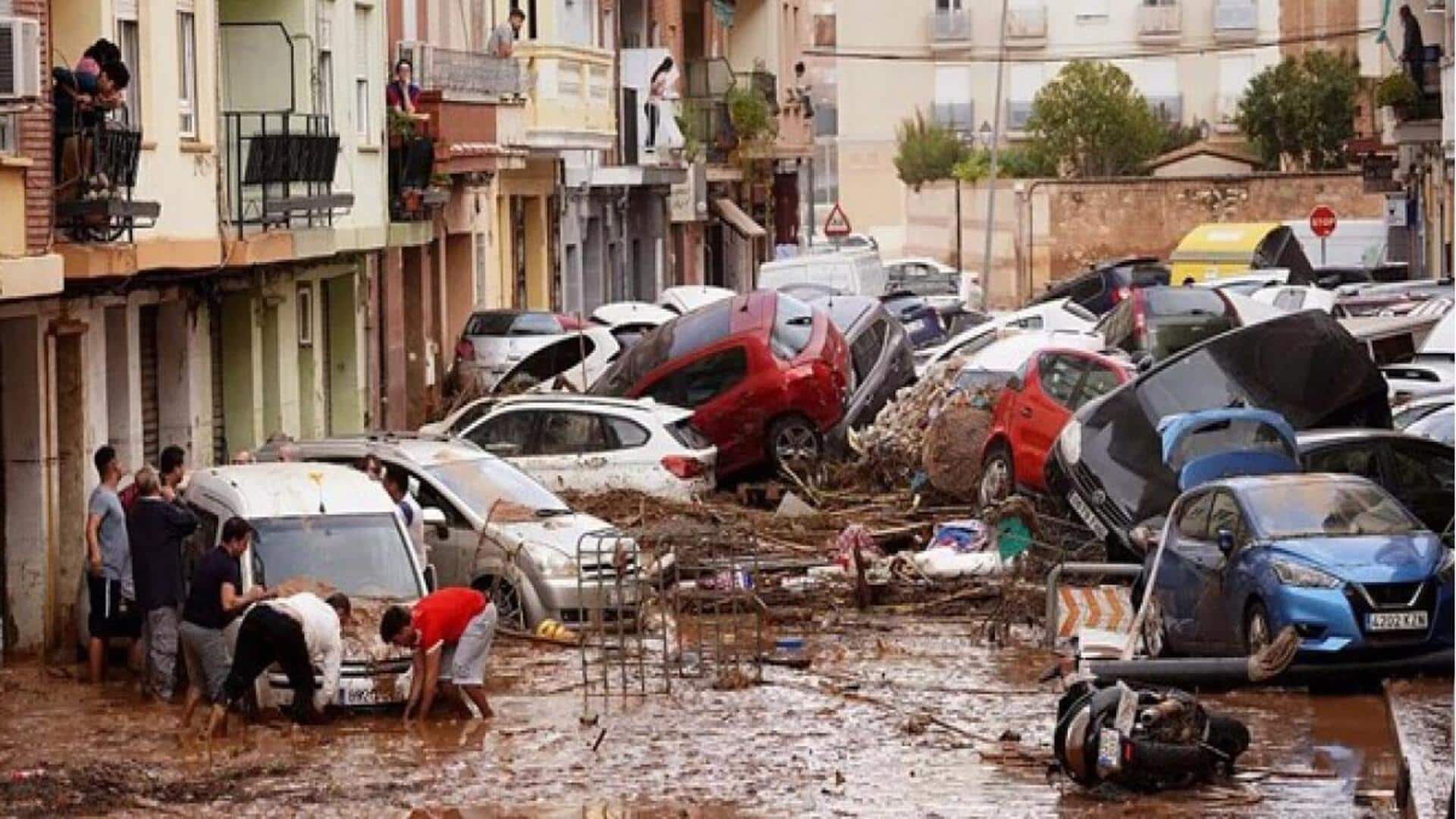
Why experts have linked Spain's deadly floods to climate change
What's the story
Spain is reeling from a deadly natural disaster as floods and mudslides have killed at least 205 people. Dozens more are still missing in the eastern parts of the country. The catastrophic event is now being described as one of the deadliest weather incidents in Spain's modern history. Climate scientists are blaming anthropogenic global warming for the disaster.
Climate impact
Global warming intensified Spain's rainfall by 12%
The World Weather Attribution, a global consortium of scientists studying the impact of climate change on significant weather events, conducted a rapid analysis. The study indicates that global warming made the recent heavy rainfall in Spain roughly 12% more severe and twice as likely. Daniel Swain, a climate scientist at UCLA who was not involved in this analysis, told NPR that "there is a clear climate change footprint on events like this one."
Warming effects
Global warming's role in severe downpours
For years, climate scientists have been warning that global warming, mainly due to human activities like burning oil, gas and coal, could result in intense downpours. A warmer atmosphere can hold more water vapor, leading to heavier rainfall. The world is currently at least 1.3 degrees Celsius warmer than it was during the 1800s. Research shows that a 1.3 degree temperature rise allows the atmosphere to hold about 9% more moisture.
Extreme rainfall
A year's rain fell in 8 hours
In Chiva, a town near Valencia, the amount of rain usually seen in a year fell in just eight hours, as per Spain's meteorological agency. "One of the clearest near-term consequences of global warming, aside from rising temperatures themselves, is an increase in the most extreme rain events," said Swain.
Oceanic impact
Climate change and superhot oceans
Scientists also suggest a possible connection between Spain's floods and superhot oceans, mainly driven by climate change. Warmer ocean waters can provide storms with additional moisture. An analysis by Climate Central, a nonprofit research organization, suggests that global warming likely raised temperatures in the Atlantic Ocean region where most of the storm's moisture came from.
Warning systems
Experts call for improved early warning systems
Rebecca Carter, director of climate adaptation and resilience at the nonprofit World Resources Institute, stressed the need for improved early warning systems in the wake of these extreme weather events. She said "the devastating floods in Spain are the latest example of the type of extreme climate events that scientists have been warning us about." Carter further warned that "as the climate continues to be destabilized, no place can count on being spared from these types of unprecedented disasters."